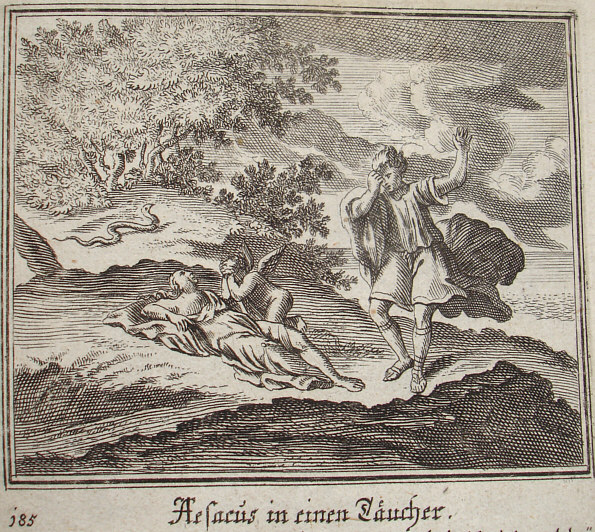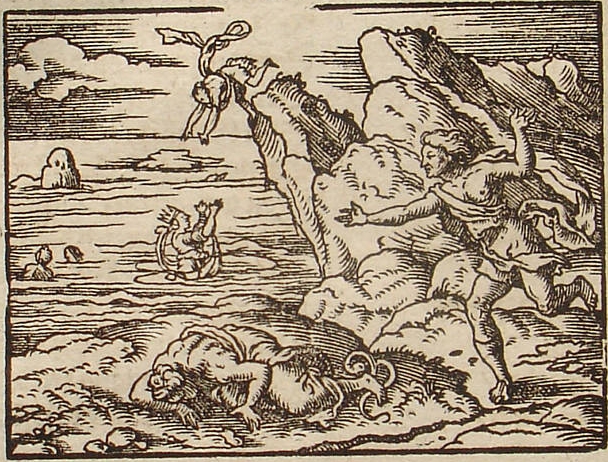Aesacus
Aesacus or Aisakos (Ancient Greek: Αἴσακος) was a seer from Greek mythology, and although famous for one prophecy, Aesacus is today more famous for his attempted suicide.
AESACUS SON OF PRIAM
Aesacus was one of the innumerable sons of King Priam of Troy, and was normally said to have been born to Priam’s first wife Arisbe, the daughter of the seer Merops. Merops was said to have taught his grandson how to interpret dreams.
Ovid, in Metamorphoses, would though name Aesacus as the son of King Priam by the nymph Alexirhoe, a daughter of the Potamoi Granicus.

THE PREDICTION OF AESACUS
Aesacus’ famous prophecy occurred when his stepmother Hecabe (Hecuba) was pregnant. Hecabe had a dream that saw a flaming torch spreading fire throughout the city of Troy. Aesacus would interpret the dream for Priam and Hecabe.
Aesacus stated that the boy who was to be born would bring destruction to Troy and recommended that the child be exposed, thus killing him, when he was born. That child who was to be born was of course Paris.
THE TRANSFORMATION OF AESACUS
It was said that Aesacus did not reside in Troy much preferring the solitude offered in the countryside; and away from Troy Aesacus fell in love with a daughter of the Potamoi Cebren. This naiad was either Asterope or Hesperia.
Now either Asterope-Hesperia was his wife, or Aesacus sought to make her his wife, but one day the Naiad would step on a serpent, and would be bitten by the snake. Asterope-Hesperia would die from the bite, and in desolation, Aesacus would seek to commit suicide, throwing himself from the top of a cliff into the sea below.
Tethys, the Titan wife of Oceanus, saw Aesacus dive from the cliff, but before he could hit the water, the Greek goddess transformed him into an aquatic diving bird, but even today Aesacus, in the form of the bird, is still repeatedly diving from cliffs trying to kill himself.

Sources
Pseudo-Apollodorus. Bibliotheca, Book 3.12.5.
Tzetzes. Scholiast on Lycophron, 224.
Ovid. Metamorphoses, 11.749-759.
"Greek Legends and Myths"













